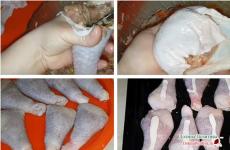Operator of a mobile compressor with an internal combustion engine. Compressor installation operator: description of the profession. Characteristics of work, tasks and job responsibilities
This job description has been automatically translated. Please note that automatic translation is not 100% accurate, so there may be minor translation errors in the text.
| Instructions for the position " Operator of a mobile compressor with an engine internal combustion 4th category", presented on the website, meets the requirements of the document - "DIRECTORY qualification characteristics workers' professions. Issue 64. Construction, installation and repair work. (Taking into account the additions approved by: order State Committee on construction and architecture N 25 of 08/08/2002, N 218 of 12/22/2003, N 149 of 08/29/2003, letter of the State Committee for Construction and Architecture N 8/7-1216 of 12/15/2004. , by order of the Ministry of Construction, Architecture and Housing and Communal Services N 9 of 12/02/2005, N 163 of 05/10/2006 N 399 of 12/05/2006, by order of the Ministry of Regional Development, Construction and Housing and Communal Services of Ukraine N 558, 12/28/2010)", which was approved by order of the State Committee for Construction, Architecture and Housing Policy of Ukraine on 10/13/1999 N 249. Agreed by the Ministry of Labor and social policy Ukraine. Entered into force on January 1, 2000. The document status is "valid". |
|
Preface to the job description
0.1. The document comes into force from the moment of approval.
0.2. Document developer: _ _ _ _ _ _ _ _ _ _ _ _ _ _ _ _ _ _ _ _ _ _ _.
0.3. The document has been approved: _ _ _ _ _ _ _ _ _ _ _ _ _ _ _ _ _ _ _ _ _ _ _ _.
0.4. Periodic check of this document is produced at intervals not exceeding 3 years.
1. General Provisions
1.1. The position "Mobile compressor operator with an internal combustion engine of the 4th category" belongs to the "Workers" category.
1.2. Qualification requirements: complete or basic general secondary education. Vocational and technical education. Training. Work experience in a related profession as a driver and mechanic repairing construction or other similar complexity machines of the 3rd category for at least 1 year.
1.3. Knows and applies in practice:
- device, operating principle, specifications compressor;
- causes of occurrence, methods of manifestation and elimination of malfunctions;
- rules for performing work and technical requirements to their quality;
- lubrication modes;
- fuel and lubricant consumption standards, ways to save them;
- plumbing for the repair of construction or other similar complex machines.
1.4. The operator of a mobile compressor with an internal combustion engine of the 4th category is appointed to the position and dismissed from the position by order of the organization (enterprise/institution).
1.5. The operator of a mobile compressor with an internal combustion engine of the 4th category reports directly to _ _ _ _ _ _ _ _ _ _ .
1.6. The operator of a mobile compressor with a 4th category internal combustion engine supervises the work of _ _ _ _ _ _ _ _ _ _ .
1.7. During his absence, the operator of a mobile compressor with an internal combustion engine of the 4th category is replaced by a person appointed in accordance with the established procedure, who acquires the appropriate rights and is responsible for the proper performance of the duties assigned to him.
2. Characteristics of work, tasks and job responsibilities
2.1. Manages a mobile compressor with an internal combustion engine during production compressed air for pneumatic mechanisms, power tools and machines and devices.
2.2. Performs shift maintenance of the compressor and participates in its scheduled preventive maintenance.
2.3. Manages a mobile compressor with an internal combustion engine with a capacity of up to 10 m3/min.
2.4. Knows, understands and applies current regulations relating to his activities.
2.5. Knows and complies with the requirements of regulations on labor protection and environment, complies with the standards, methods and techniques of safe work performance.
3. Rights
3.1. The operator of a mobile compressor with a 4th category internal combustion engine has the right to take actions to prevent and eliminate cases of any violations or inconsistencies.
3.2. The operator of a mobile compressor with an internal combustion engine of the 4th category has the right to receive all provided for by law social guarantees.
3.3. The operator of a mobile compressor with an internal combustion engine of the 4th category has the right to demand assistance in the performance of his duties and the exercise of rights.
3.4. The operator of a mobile compressor with an internal combustion engine of the 4th category has the right to demand the creation of organizational and technical conditions necessary for the performance of official duties and the provision necessary equipment and inventory.
3.5. The operator of a mobile compressor with a 4th category internal combustion engine has the right to familiarize himself with draft documents relating to his activities.
3.6. The operator of a mobile compressor with a 4th category internal combustion engine has the right to request and receive documents, materials and information necessary to fulfill his job duties and management orders.
3.7. The operator of a mobile compressor with a 4th category internal combustion engine has the right to improve his professional qualifications.
3.8. The operator of a mobile compressor with a 4th category internal combustion engine has the right to report all violations and inconsistencies identified in the course of his activities and make proposals for their elimination.
3.9. The operator of a mobile compressor with an internal combustion engine of the 4th category has the right to familiarize himself with the documents defining the rights and responsibilities of the position held, and the criteria for assessing the quality of performance of job duties.
4. Responsibility
4.1. The driver of a mobile compressor with an internal combustion engine of the 4th category is responsible for failure to fulfill or untimely fulfillment of the requirements of this job description obligations and (or) non-use of granted rights.
4.2. The operator of a mobile compressor with an internal combustion engine of the 4th category is responsible for failure to comply with the rules of internal combustion labor regulations, occupational health, safety, industrial sanitation and fire protection.
4.3. The driver of a mobile compressor with a 4th category internal combustion engine is responsible for disclosing information about an organization (enterprise/institution) that is a trade secret.
4.4. The operator of a mobile compressor with an internal combustion engine of the 4th category is responsible for failure to comply or improper fulfillment of internal requirements regulatory documents organization (enterprise/institution) and legal orders of management.
4.5. The operator of a mobile compressor with an internal combustion engine of the 4th category is responsible for offenses committed in the course of his activities, within the limits established by the current administrative, criminal and civil legislation.
4.6. The operator of a mobile compressor with an internal combustion engine of the 4th category is responsible for causing material damage to the organization (enterprise/institution) within the limits established by the current administrative, criminal and civil legislation.
4.7. The operator of a mobile compressor with an internal combustion engine of the 4th category is responsible for the unlawful use of the granted official powers, as well as their use for personal purposes.
A compressor unit operator is a specialist who ensures uninterrupted operation, maintains it, and prepares it for starts and stops. Must maintain the established technological rhythm in work.
Using automation, measuring and control devices, protection and alarm systems, as well as blocking, the compressor unit operator performs a professional inspection of the equipment and determines the causes of breakdowns, after which he eliminates them.
Requirements
The job description of a compressor unit operator describes a list of duties that require the absence of contraindications. If an employee has health problems, then working on this installation is strictly prohibited.
The compressor operator must have vision that is resistant to fatigue. Acute vision with normal color vision is one of the important criteria.
Good hearing, a keen sense of smell, developed memory - qualities that must be present at high level.
Physically hard work requires great endurance. In case of health problems, as a result of which large physical exercise and monotonous work, the employee should be relieved of his position.
The ability to work in a large team is an important personal skill, without which it is difficult to imagine working as a mechanic.
Contraindications to work in this position are disorders of the vestibular system, hearing and vision impairment, and a predisposition to colds.
Qualification requirements
This employee has a complex and responsible job. A compressor unit operator must have extensive knowledge in the fields of chemistry, physics, and electrical engineering. Knowledge of types and types is required to perform the work efficiently.
Knowledge technological processes, used in production, are the key to successful work.
It is also necessary to know the principles of operation of the installation, the structure of the compressor, electric motors, as well as the instruments used to carry out measurements.
Rank
According to the directory, there are 5 categories of compressor unit operators. Everyone has their own requirements for vocational training, and also describes the duties that an employee must perform in this position.

The ETKS classifier distinguishes drivers of the second, third, fourth, fifth and sixth categories.
The second category is the highest; it has the highest requirements for experience and skills. The sixth, accordingly, is the lowest.
Compressor unit operator ranks are assigned according to work experience. Responsibilities depend on the rank, as well as the level of remuneration.
Second category
A second-class compressor unit operator services compressors with operating pressures up to 10 kgf/cm2 (1 MPa). The flow rate of this unit is 5 m 3 /min.
Responsibilities include:
- starting, stopping and regulating compressors;
- monitoring the operation of auxiliary equipment, as well as the compressors themselves;
- lubricating parts of mechanisms that experience friction;
- prevention of malfunctions in the operation of the compressor;
- troubleshooting;
- monitoring the operation of safety devices;
- repair of drive motors;
- filling oil into emergency and service tanks, as well as pumping out oil;
- participation in the repair of compressor equipment.
Knowledge for the second category
The compressor installation operator's instructions presuppose the presence of professional knowledge, without which it will be impossible to perform direct duties.

The employee must know:
- principles of operation of a turbocharger;
- operating principle of a piston compressor;
- operation of steam engines and turbocompressors;
- principle of operation of electric motors;
- troubleshooting methods for engines and compressors;
- methods of using instruments for measurement and control, as well as the purpose of each instrument;
- station pipeline diagram;
- operating pressure and air temperature corresponding to each mode;
- permissible temperature to which the operating unit unit can heat up;
- methods for eliminating overheating, as well as measures to prevent overheating;
- brands of oils used in the installation for lubrication of components.
Third category
Compressor unit operator training takes place not only at a vocational school or university. There are advanced training courses, after completing which the student is issued a certificate of assignment to a higher rank.

Turbochargers and stationary compressors with operating pressure up to 10 kgf/cm2 (1 MPa), flow rate above 5 m3/min. and up to 100 m 3 /min. Or installations with pressure above 10 kgf/cm 2 (1 MPa) and flow up to 5 m 3 /min. when carrying out work with non-hazardous gases driven by different engines.
For a third-class specialist, the responsibilities include:
- regulation and start-up of compressors, engines and turbochargers;
- maintaining the required compressor operating parameters;
- switching various units;
- prevention of emergency situations in the operation of the station;
- preparation of technical documentation on the operation of the equipment being serviced;
- taking part in the repair of units and parts of the station.
Knowledge for the third category
An employee with the third category must know:
- piston compressors, internal combustion engines, electric motors, steam engines and installations;
- technical characteristics of the described units and rules for their maintenance;
- installation of control and measuring equipment, maintenance rules and technical characteristics;
- installation piping diagram;
- documentation necessary for the operation of the installation;
- fundamentals of thermodynamics, as well as electrical engineering;
- properties of gases during compressor operation.
Fourth category
A driver with the specified category services turbochargers and stationary compressors up to 10 kgf/cm2 (1 MPa). The flow rate in these installations is more than 100 m 3 /min.
The work consists of:
- establishing and maintaining a favorable operating mode for the compressor;
- monitoring the serviceability of engines, instruments, mechanisms;
- participation in the inspection and repair of equipment (according to the qualifications of a mechanic with the 3rd category).
Knowledge for the fourth category
To perform duties at a high level must know:
- design features, as well as device various types compressors, internal combustion engines, turbochargers, electric motors, complex instruments for control and measurement, fittings and equipment, steam engines;
- layout diagrams of pipelines, steam lines, tanks and fittings;
- diagrams according to which it is located automatic device blocking station operation;
- technical characteristics of compressors that need to be serviced;
- electricity consumption standards for normal operation of the station;
- standards for the consumption of materials for the production of gases or compressed air.
Fifth category
A fifth-class driver services automated stations up to 100 m 3 /min.

His responsibilities are:
- switching, as well as putting equipment into repair and standby mode;
- regulation of technical processes;
- compiling lists of defects, as well as sheets for equipment repairs;
- carrying out repairs of station equipment (qualification of a mechanic of the 4th category);
- carrying out repairs of internal combustion engines and compressor units in field and emergency conditions.
Knowledge for the fifth category
A fifth-grade mechanic should know internal organization good enough.

Required knowledge:
- kinematic diagrams of turbocompressors, electric motors, steam engines, internal combustion engines;
- devices for compressors operating at high pressure;
- operating rules and characteristics auxiliary equipment, steam engines, electric motors, turbocompressor units;
- technological processes of the station;
- Efficiency of the compressor and applied structures and systems.
Sixth category
The work of a sixth-grade driver requires the greatest concentration, and knowledge must be supported not only by theory, but also by practice. Due to the fact that the serviced units have high power, then the employee must be able to:
- surveillance proper work equipment of the entire station;
- regulation of the process of producing station work products;
- preparation of defect reports;
- equipment repair (5th category mechanic qualification).
Knowledge for the sixth category
Knowledge is required:
- turbocharger designs;
- kinematic schemes;
- various power equipment: steam engines, electrical equipment, internal combustion engines;
- characteristics for use power plants compressors.
Work safety
Occupational safety and health of compressor unit operators is regulated by current legislation. Russian Federation. Labor legislation, as well as labor protection and life safety standards, establish acceptable operating limits for mechanics. The work schedule is consistent with the qualifications and is based on the employee’s health status.

Vacancies
In Moscow, a compressor unit operator earns from 80,000 rubles. An employee of this category is required for large manufacturing enterprises. To submit your resume for consideration, you need to monitor the labor market and track emerging vacancies.
Program
vocational training by profession
« Operator of a mobile compressor with an internal combustion engine»
(retraining, advanced training 4 – 6 category)
Profession code: 13771
Many enterprises often have a need for compressed air in remote locations. The optimal solution in such situations is mobile compressors. They are produced in a wide range of capacities and are equipped with petrol or diesel engine internal combustion. Manufacturers take into account the possibility of operation in difficult conditions and provide a number of design solutions aimed at increasing the reliability of equipment of this type. The basis of the design mobile compressors with an internal combustion engine lies a mobile chassis. Traditionally, these mobile compressors are mounted on truck trailers. Availability of electronic start and modern systems controls facilitate the operation and maintenance of such models.
The profession “Mobile compressor operator with an internal combustion engine” requires certain professional skills. The activity of a driver is work using knowledge about the design of compressors, internal combustion engines, their technical characteristics and maintenance rules, and the design of instrumentation.
Characteristics of work: services a mobile compressor during the production of compressed air for pneumatic mechanisms, power tools, machines and devices.
Most often, this profession is not the main, but an additional specialty. This program intended for professional retraining(for related professions) and advanced training of workers in the profession “Mobile compressor operator with an internal combustion engine.” It should be taken into account that during professional retraining from related specialties, the training period is reduced.
The rank range of this profession: 4 – 6 ranks. The capacity depends on the power of the compressor serviced by the driver.
The training programs provide the necessary volume educational material to expand professional knowledge, skills and abilities sufficient to confidently perform their professional duties in accordance with the qualification characteristics.
Abstract to the program:
Depending on the qualifications available, the following types of programs are provided:
- Professional retraining program (for persons with related specialties: drivers of category C, mechanics of DSM, operators of mobile power plants, etc.). You can find out more details.
- Advanced training program (up to level 6) (for operators of mobile compressors with an internal combustion engine). Read more about curriculum, requirements for students, training periods Can .
The program includes the study of the following modules:
- Design of a mobile compressor with an internal combustion engine
- Operation of a mobile compressor with an internal combustion engine
- Maintenance and repair of a mobile compressor with an internal combustion engine
- General requirements industrial safety and labor protection
The training ends with a final control (exam).
Training can be carried out both on the basis of our training center, and with a teacher visiting the enterprise.
Upon completion of training and subject to successful completion of the final control, students receive a certificate (certificate of advanced training (of the established form), and Minutes of the meeting of the examination committee (for the organization).
Groups are formed as they fill up.
0.1. The document comes into force from the moment of approval.
0.2. Document developer: _ _ _ _ _ _ _ _ _ _ _ _ _ _ _ _ _ _ _ _ _ _ _.
0.3. The document has been approved: _ _ _ _ _ _ _ _ _ _ _ _ _ _ _ _ _ _ _ _ _ _ _ _.
0.4. Periodic verification of this document is carried out at intervals not exceeding 3 years.
1. General Provisions
1.1. The position "Mobile compressor operator with an internal combustion engine of the 5th category" belongs to the "Workers" category.
1.2. Qualification requirements: complete or basic general secondary education. Vocational and technical education. Training. Work experience as a compressor operator and mechanic repairing construction or other similar complexity machines of the 4th category for at least 1 year.
1.3. Knows and applies in practice:
- device, operating principle, technical characteristics of the compressor;
- causes of occurrence, methods of manifestation and elimination of malfunctions;
- rules for performing work and technical requirements for their quality;
- lubrication modes;
- fuel and lubricant consumption standards, ways to save them;
- plumbing for the repair of construction or other similar complex machines.
1.4. Appointed to a position and dismissed from a position by order of the organization (enterprise/institution).
1.5. Reports directly to _ _ _ _ _ _ _ _ _ _ .
1.6. Supervises the work of _ _ _ _ _ _ _ _ _ _ .
1.7. During absence, he is replaced by a person appointed in accordance with the established procedure, who acquires the corresponding rights and is responsible for the proper performance of the duties assigned to him.
2. Characteristics of work, tasks and job responsibilities
2.1. Manages a mobile compressor with an internal combustion engine during the production of compressed air for pneumatic mechanisms, power tools and machines and devices.
2.2. Performs shift maintenance of the compressor and participates in its scheduled preventive maintenance.
2.3. Manages a mobile compressor with an internal combustion engine with a capacity of 10 to 50 m3/min.
2.4. Knows, understands and applies current regulations relating to his activities.
2.5. Knows and complies with the requirements of regulations on labor protection and environmental protection, complies with the norms, methods and techniques for the safe performance of work.
3. Rights
The operator of a mobile compressor with an internal combustion engine of the 5th category has the right:
3.1. Take action to prevent and correct any violations or non-compliances.
3.2. Receive all social guarantees provided for by law.
3.3. Request assistance in the performance of their official duties and the exercise of their rights.
3.4. Require the creation of organizational and technical conditions necessary for the performance of official duties and the provision of the necessary equipment and inventory.
3.5. Get acquainted with draft documents relating to its activities.
3.6. Request and receive documents, materials and information necessary to fulfill their job duties and management orders.
3.7. Improve your professional qualifications.
3.8. Report all violations and inconsistencies identified in the course of its activities and make proposals for their elimination.
3.9. Familiarize yourself with the documents defining the rights and responsibilities of the position held, and the criteria for assessing the quality of performance of official duties.
4. Responsibility
The operator of a mobile compressor with a 5th category internal combustion engine is responsible for:
4.1. Failure to fulfill or untimely fulfillment of the duties assigned by this job description and (or) failure to use the granted rights.
4.2. Failure to comply with internal labor regulations, labor protection, safety regulations, industrial sanitation and fire protection.
4.3. Disclosure of information about an organization (enterprise/institution) related to a trade secret.
4.4. Failure to fulfill or improper fulfillment of the requirements of internal regulatory documents of the organization (enterprise/institution) and legal orders of management.
4.5. Offenses committed in the course of their activities, within the limits established by the current administrative, criminal and civil legislation.
4.6. Causing material damage to an organization (enterprise/institution) within the limits established by current administrative, criminal and civil legislation.
4.7. Illegal use of granted official powers, as well as their use for personal purposes.
EXPLANATORY NOTE
In accordance with the Procedure for training in labor protection and testing knowledge of labor protection requirements for employees of organizations, approved by Resolution of the Ministry of Labor of Russia and the Ministry of Education of Russia dated January 13, 2003 N 1/29, the employer (or his authorized person) is obliged for all persons hired, as well as for workers transferred to another job, provide instructions on labor protection.
All persons hired, as well as employees seconded to the organization and employees of third-party organizations performing work in a designated area, students educational institutions relevant levels taking place in the organization industrial practice, and other persons involved in the production activities of the organization undergo initial training at the workplace, repeated, unscheduled and targeted training.
Initial briefing at the workplace, repeated, unscheduled and targeted briefings are carried out by the immediate supervisor (producer) of the work (foreman, foreman, teacher, etc.), who has undergone occupational safety training in the prescribed manner and tested knowledge of labor safety requirements.
Conducting labor safety briefings includes familiarizing workers with existing dangerous or harmful production factors, studying labor safety requirements contained in local regulations organization, labor protection instructions, technical and operational documentation, as well as the use safe methods and methods of performing work.
The labor safety briefing ends with an oral assessment of the employee’s acquired knowledge and skills in safe work practices by the person conducting the briefing.
Initial instruction at the workplace is carried out before starting independent work:
With all newly hired employees, including employees performing work on the terms employment contract concluded for a period of up to two months or for the period of execution seasonal work, in their free time from their main job (part-time workers), as well as at home (homeworkers) using materials, tools and mechanisms provided by the employer or purchased by them at their own expense;
With employees of the organization transferred in accordance with the established procedure from another structural unit, or employees who are entrusted with performing work that is new to them;
With seconded employees of third-party organizations, students of educational institutions at relevant levels, undergoing practical training (practical classes), and other persons participating in the production activities of the organization.
Initial training at the workplace is carried out by managers structural divisions organizations according to programs developed and approved in accordance with the requirements of legislative and other regulatory legal acts on labor protection, local regulations of the organization, instructions on labor protection, technical and operational documentation.
This on-the-job training program was developed in accordance with the Unified Tariff and Qualification Directory of Work and Professions of Workers (UTKS) and taking into account the characteristics of the working conditions and safety of a mobile compressor operator.
The program contains a list of regulatory, reference, educational, methodological and other documentation on labor protection recommended for preparation for conducting training on labor safety in the workplace.
CHARACTERISTICS OF THE WORK OF A MOBILE COMPRESSOR OPERATOR
Control of a mobile compressor with an internal combustion engine used in construction, installation and repair work. Maintenance and preventive repair of a mobile compressor with an internal combustion engine.
Must know: the design of a mobile compressor with an internal combustion engine, rules and instructions for its operation, maintenance and preventive maintenance; rules traffic when working with motorized vehicles; methods of performing work using appropriate machines; technical requirements for the quality of work performed, materials and elements of structures; consumption standards for fuels and lubricants and electricity; plumbing to the extent provided for a construction mechanic, but one category lower than that of a machinist; rules, regulations and instructions on labor protection and fire safety; rules for using primary fire extinguishing agents; methods of providing first aid in case of accidents; internal labor regulations of the organization.
TRAINING PROGRAM
3.1. Working conditions for a mobile compressor operator
Features and characteristics of working conditions for a mobile compressor operator. Typical causes of accidents and occupational diseases among mobile compressor operators. Examples of accidents when servicing a mobile compressor.
3.2. General labor protection requirements
Procedure for admitting a mobile compressor operator to servicing pressure vessels. Age restrictions. Preliminary and periodic medical examinations. No medical contraindications for health reasons.
Types of labor safety briefings: introductory, primary at the workplace, repeated, unscheduled, targeted. Training, certification, testing of knowledge of the Rules for the design and safe operation of pressure vessels. The amount of knowledge that a mobile compressor driver must possess. Requirements for having a certificate for the right to perform work as a driver.
Requirements for familiarization with labor safety instructions before admission to work independent work. Rules for admission to high-risk work.
Requirements for internship under the supervision of an experienced mobile compressor operator to acquire practical work skills.
Dangerous and harmful production factors that can have an adverse effect on the operator of a mobile compressor during operation.
Adverse effects of hazardous and harmful production factors on the human body.
Industrial situations that pose the greatest danger to a mobile compressor operator: the possibility of an explosion of a system operating under compressed gas pressure.
Actions of a mobile compressor operator in case of illness or poor health. Actions of a mobile compressor operator if an accident occurs with one of the workers. First aid methods. Using a medical kit.
Labor and production discipline, internal labor regulations. Working hours and rest hours.
Fire and explosion safety measures when operating a mobile compressor. Primary fire extinguishing agents.
Personal hygiene rules when operating a mobile compressor.
Responsibility for violation or failure to comply with labor safety instructions.
3.3. Labor protection requirements before starting work
Actions of a mobile compressor operator before starting work.
Requirements for special clothing, special shoes and other equipment personal protection from exposure to hazardous and harmful production factors.
Design and principle of operation of mobile compressors with an internal combustion engine. Design features mobile compressor with internal combustion engine.
Requirements for the serviceability of equipment.
Safety requirements for areas where the compressor is located.
Requirements for the presence and serviceability of shields protecting the moving parts of the compressor mechanisms.
Requirements for the serviceability of all its pressure gauges and safety valves.
Requirements for the presence and level of oil in the gearbox and air filters of the compressor.
Actions of the driver when installing the compressor in a new location after its relocation.
Malfunctions in which compressor equipment is prohibited from being allowed into operation. Prohibition to operate the compressor:
In case of malfunctions specified in the manufacturer's instructions for operating the compressor, for which its use is not allowed;
If the next tests are not carried out on time ( technical examination) compressor and receiver;
If there is a malfunction of pressure gauges or safety valves in the compressor pneumatic system; pressure gauges and safety valves must be promptly tested and sealed;
In case of insufficient lighting of the workplace and approaches to it;
If the valves on the dispensing comb are faulty.
Prohibition to operate the compressor by people who do not have the appropriate permit.
It is prohibited to start working on untested or faulty compressor equipment.
3.4. Labor protection requirements during work
Rights and responsibilities of persons responsible for the correct and safe operation mobile compressor with internal combustion engine.
Safety measures when starting, stopping, and regulating engine operation.
Safety measures when using instrumentation.
Safety requirements when refueling the engine, lubrication of components and auxiliary mechanisms.
Safety precautions when performing current repairs and engine repair.
Precautionary measures when opening, inspecting, assembling and disassembling the engine during inspection.
Prohibition for the driver:
Start the compressor engine when the pressure in the air collector is higher than atmospheric;
Connect hoses directly to the line or tool without valves on the line;
Do not allow hoses to break, get tangled or twisted, or come into contact with hot or oily surfaces;
Direct a jet of compressed air at yourself or other workers;
Change the pressure in the pneumatic system sharply;
Maintain the compressor, including cleaning, adjusting or lubricating individual parts while it is operating;
Carry out repairs to individual mechanisms, air ducts or hose connections while the compressor is running;
Leave workplace with the engine running.
Safety requirements when working with plumbing tools.
3.5. Occupational safety requirements in emergency situations
Actions of a mobile compressor operator in the event of an emergency, when violations of labor protection requirements are detected that pose a threat to health or personal safety. Malfunctions in the event of which the operation of the mobile compressor must be stopped immediately.
Actions of a mobile compressor operator in the event of a fire. Procedure for using primary fire extinguishing agents.
Actions of a mobile compressor operator in case of an accident, poisoning, or sudden illness. Methods of providing first aid to the victim. Treating the wound and dressing it.
3.6. Labor protection requirements upon completion of work
Actions of a mobile compressor operator upon completion of work. The procedure for handing over duty.
Precautionary measures when tidying up the workplace and tools.
Requirements to proper storage and care of workwear, safety footwear and other personal protective equipment.
Requirements for reporting all malfunctions and malfunctions of compressor equipment noticed during work, as well as other violations of labor safety requirements to your immediate supervisor.
Personal hygiene rules after finishing work.
4.1. GOST 12.2.016-81* SSBT. Compressor equipment. General safety requirements.
4.2. Safety requirements when performing work using hand tools(collection of normative documents). - M.: Scientific Research Center "Normative-Inform", 2004.
4.3. FNP "Industrial safety rules for hazardous production facilities that use equipment operating under overpressure", approved by order of Rostechnadzor dated March 25, 2014 N 116.
4.4. Fire regulations in the Russian Federation, approved by Decree of the Government of the Russian Federation of April 25, 2012 N 390.
4.5. Intersectoral rules for providing workers with special clothing, special footwear and other personal protective equipment, approved by order of the Ministry of Health and social development Russian Federation dated June 1, 2009 N 290n.
4.6. Lists of harmful and (or) dangerous production factors and work, during which preliminary and periodic medical examinations (examinations) are carried out, and the procedure for conducting preliminary and periodic medical examinations (examinations) of workers engaged in heavy work and work with harmful and (or) ) hazardous conditions labor, approved by order of the Ministry of Health and Social Development of Russia dated April 12, 2011 N 302n.
4.7. The list of measures for providing first aid and the List of conditions for which first aid is provided were approved by order of the Ministry of Health and Social Development of Russia dated May 4, 2012 N 477n.
Related information.






